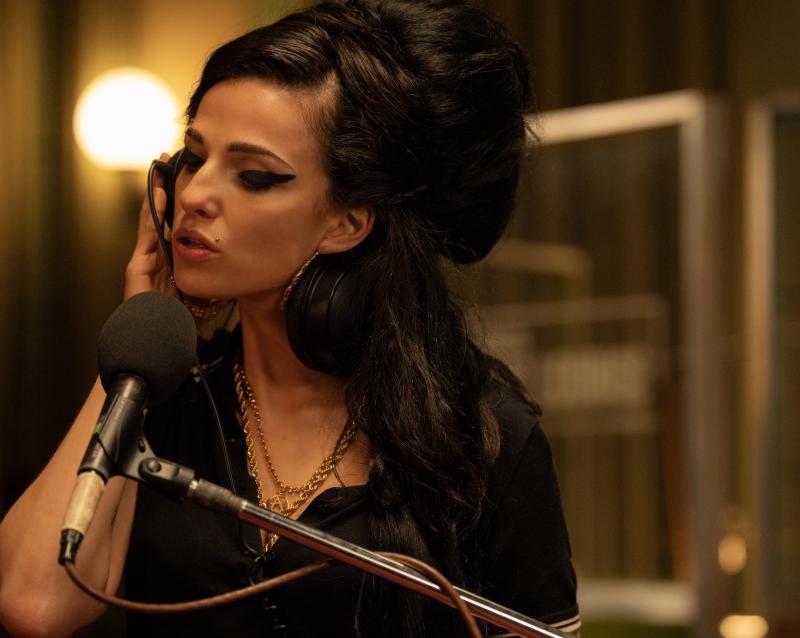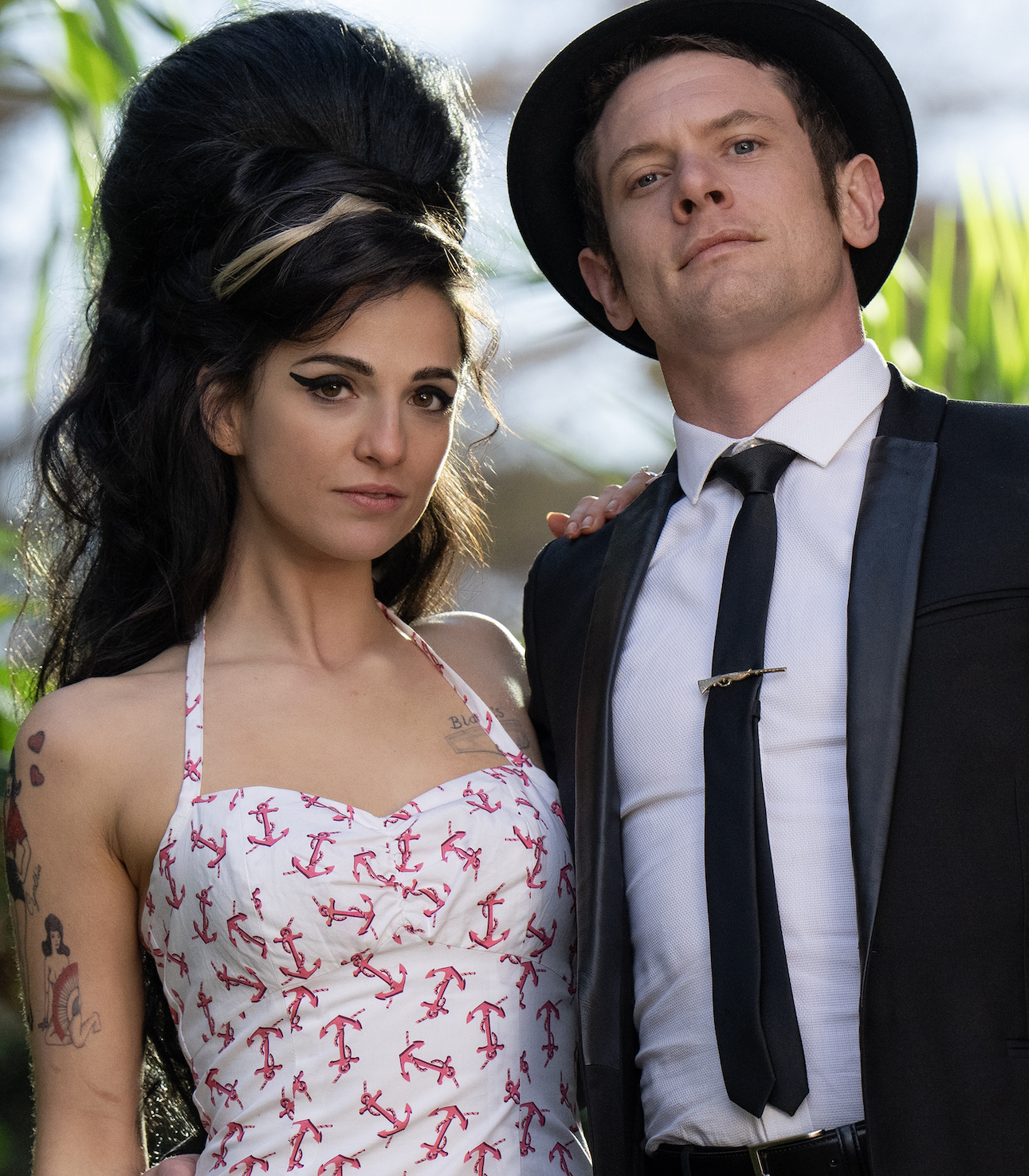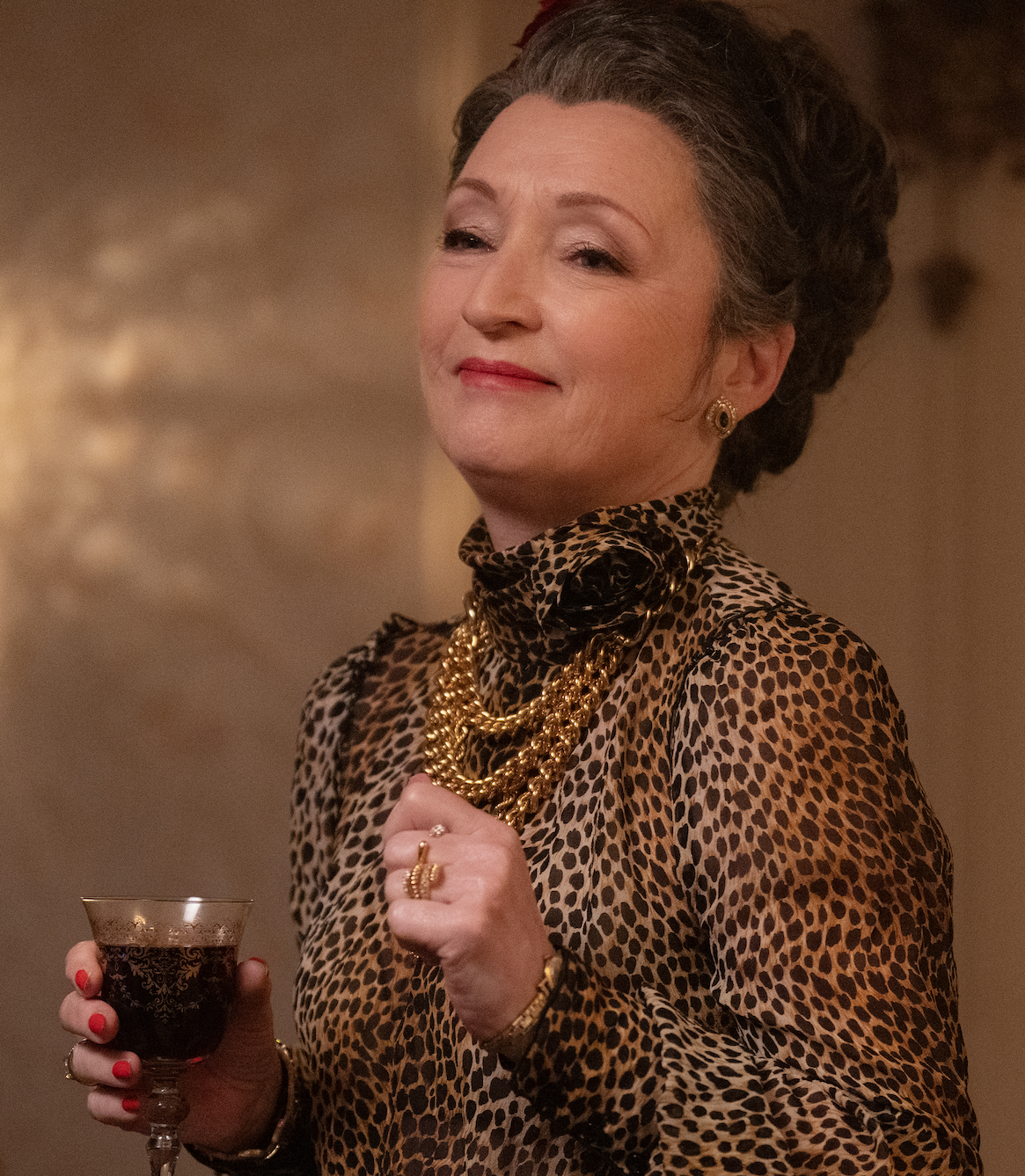Back to Black review - rock biopic with a loving but soft touch | reviews, news & interviews
Back to Black review - rock biopic with a loving but soft touch
Back to Black review - rock biopic with a loving but soft touch
Marisa Abela evokes the genius of Amy Winehouse, with a few warts minimised

Sam Taylor-Johnson has fashioned her biopic of Amy Winehouse with great care and affection, but sometimes, as she shows her subject discovering, love isn’t quite enough.
The superb jazz-inflected singer from north London, who in 2011 joined the sad club of pop-culture luminaries who died at the age of 27, has already been given the documentary treatment by award-winning film-maker Asif Kapadia. Documentarists can expose their subject both visually and forensically, but a feature film has the tougher challenge of telling some of the same basic story without the mesmerising presence of the star herself.
So what is the aim of this kind of project? You have to assume it is an attempt to reanimate the singer, and that the director has happened on a rare performer who can do that, much as Myles Frost is currently reincarnating Michael Jackson onstage in MJ The Musical.
 In Marisa Abela, Taylor-Johnson has found just such an actress. Although her musical performance is obviously a studied one, she has enough of the iron-clad timbre of Winehouse’s voice at full belt, delivered with the trademark sideways moves of the jaw and the suggestion of a sneer, to remind you of what was lost. There was no way Abela could go the full skinny, as Winehouse did in the depths of her addiction, without risking death, but she carries off the mad mountain of a beehive, her urban drawl, her anti-paparazzi rages with aplomb. The early shot of her sashaying down to meet her mates at Camden Market, fag on, the mini-est of mini skirts barely covering her bum, is delightful.
In Marisa Abela, Taylor-Johnson has found just such an actress. Although her musical performance is obviously a studied one, she has enough of the iron-clad timbre of Winehouse’s voice at full belt, delivered with the trademark sideways moves of the jaw and the suggestion of a sneer, to remind you of what was lost. There was no way Abela could go the full skinny, as Winehouse did in the depths of her addiction, without risking death, but she carries off the mad mountain of a beehive, her urban drawl, her anti-paparazzi rages with aplomb. The early shot of her sashaying down to meet her mates at Camden Market, fag on, the mini-est of mini skirts barely covering her bum, is delightful.
As a love story, too, the film is oddly charming, even though Winehouse’s choice of bad boy, Blake Fielder-Civil (charismatic Jack O’Connell, pictured above with Abela), is clearly a wayward soul who will be dangerous to her health. Their first encounter, in a Camden pub pool-room, really fizzes and sparks; and the deterioration of their relationship, as the extent of his dependence on class-A drugs becomes clear, is painful to watch. O’Connell has the scrawny energy of a classic scally, but with a wit and drive to match Winehouse’s own.
Blake is given the rare honour of appearing in a scene without Amy’s bodily presence – she is the voice on the jukebox singing “Valerie”, a hit that makes his dodgy mate urge him to patch things up with her as she must now be loaded, and Blake is in serious debt to his dealers. Next thing we know, we are with the couple on their mad honeymoon in Miami Beach. Amy’s dad Mitch (the estimable Eddie Marsan) is also granted a couple of scenes on his own, driving his taxi and sitting in a pub when he gets her call telling him she just got married. But all other scenes are dominated by Amy.
This reliance on Amy’s point of view – scripted by Matt Greenhalgh, Taylor-Johnson’s writer on her previous music biopic, Nowhere Boy – produces an odd result: we learn a lot about Amy’s mindset as fame hits, but only a smattering of specifics from her back story. It’s clear her parents are unhappily divorced, but Mrs Winehouse (Juliet Cowan) makes just two brief appearances; Amy’s brother at uni is mentioned but never seen. Ditto her best female friends, after the visit to Camden. A woman called Juliet shares her first flat with her but leaves, unable to cope with her unruly ways, with no further explanation.
 The most significant link to Amy’s past is her beloved Nan (Lesley Manville, pictured left), an ailing jazz singer who had hung out with the greats at Ronnie Scott’s and is her style icon and guiding light. But if you come to the film cold, you won’t necessarily understand where the deep-seated unhappiness comes from that drives Amy to drink. Her crash pad in the basement of her mum’s place, alongside the washing machine, is suggestive of a typical teenager in rebellious mode, but suddenly, whoosh, she has a manager, a record deal and an attitude problem.
The most significant link to Amy’s past is her beloved Nan (Lesley Manville, pictured left), an ailing jazz singer who had hung out with the greats at Ronnie Scott’s and is her style icon and guiding light. But if you come to the film cold, you won’t necessarily understand where the deep-seated unhappiness comes from that drives Amy to drink. Her crash pad in the basement of her mum’s place, alongside the washing machine, is suggestive of a typical teenager in rebellious mode, but suddenly, whoosh, she has a manager, a record deal and an attitude problem.
Poor Eddie Marsan is like a bemused bystander in a lot of the mayhem that follows. The script gives him so little to say that he spends whole scenes merely moving his head to follow the flow of an argument. He seems to have a girlfriend, but she too is invisible. We see his paternal pride and concern, but that’s about it. It’s an anodyne role. (The negative version of him in Kapadia’s documentary reportedly outraged the family, who made a counterblast short film, Remembering Amy.) Did the producers make a deal with Winehouse’s estate that hobbled them, much as a similar one restricted Lynn Nottage’s ability to tell a fuller version of Michael Jackson’s “truth” in MJ? Taylor-Johnson says not: she simply didn’t want to dwell on the depths Amy descended to. Even so, her film ends up oddly lightweight.
On the plus side, she was able to use Abela’s version of the songs, arranged by Nick Cave and Warren Ellis, under music producer Giles Martin, son of George. Cave and Ellis have also written a special song for the end credits, which includes the lines, “He walks away/ the sun goes down/ But I will love you anyway.”
As with this one, the songs are strategically placed throughout so their lyrics echo events in Amy’s life and underline the big point she makes to an interviewer: she had to live her songs before she could write them. It’s this aspect of her life, her whole-hearted connection with the source of her music, that gives the film its greatest poignancy. Elsewhere the warts are softened with concealer: the misery of experiencing her parents’ divorce; her bulimia, seen just once and referred to twice; the addiction not just to vodka and crack cocaine but to heroin too; the full dazed incoherence of some of her later live performances.
The film wants to portray her not as a victim who lived an unsavoury addict’s life until she belatedly cleaned up, but as a heroic woman betrayed by her ability to feel too much for the wrong man. She was both, one assumes, but the more sordid elements seem to have been hustled off-screen. Still, go for the music, for seeing Amy bowled over by the heady melodramatics of the Shangri-Las, for watching her with her ace band live onstage, for the genuine sense of her genius that the film is still able to project.
The future of Arts Journalism
You can stop theartsdesk.com closing!
We urgently need financing to survive. Our fundraising drive has thus far raised £49,000 but we need to reach £100,000 or we will be forced to close. Please contribute here: https://gofund.me/c3f6033d
And if you can forward this information to anyone who might assist, we’d be grateful.

Subscribe to theartsdesk.com
Thank you for continuing to read our work on theartsdesk.com. For unlimited access to every article in its entirety, including our archive of more than 15,000 pieces, we're asking for £5 per month or £40 per year. We feel it's a very good deal, and hope you do too.
To take a subscription now simply click here.
And if you're looking for that extra gift for a friend or family member, why not treat them to a theartsdesk.com gift subscription?
more Film
 The Mastermind review - another slim but nourishing slice of Americana from Kelly Reichardt
Josh O'Connor is perfect casting as a cocky middle-class American adrift in the 1970s
The Mastermind review - another slim but nourishing slice of Americana from Kelly Reichardt
Josh O'Connor is perfect casting as a cocky middle-class American adrift in the 1970s
 Springsteen: Deliver Me From Nowhere review - the story of the Boss who isn't boss of his own head
A brooding trip on the Bruce Springsteen highway of hard knocks
Springsteen: Deliver Me From Nowhere review - the story of the Boss who isn't boss of his own head
A brooding trip on the Bruce Springsteen highway of hard knocks
 The Perfect Neighbor, Netflix review - Florida found-footage documentary is a harrowing watch
Sundance winner chronicles a death that should have been prevented
The Perfect Neighbor, Netflix review - Florida found-footage documentary is a harrowing watch
Sundance winner chronicles a death that should have been prevented
 Blu-ray: Le Quai des Brumes
Love twinkles in the gloom of Marcel Carné’s fogbound French poetic realist classic
Blu-ray: Le Quai des Brumes
Love twinkles in the gloom of Marcel Carné’s fogbound French poetic realist classic
 Frankenstein review - the Prometheus of the charnel house
Guillermo del Toro is fitfully inspired, but often lost in long-held ambitions
Frankenstein review - the Prometheus of the charnel house
Guillermo del Toro is fitfully inspired, but often lost in long-held ambitions
 London Film Festival 2025 - a Korean masterclass in black comedy and a Camus classic effectively realised
New films from Park Chan-wook, Gianfranco Rosi, François Ozon, Ildikó Enyedi and more
London Film Festival 2025 - a Korean masterclass in black comedy and a Camus classic effectively realised
New films from Park Chan-wook, Gianfranco Rosi, François Ozon, Ildikó Enyedi and more
 After the Hunt review - muddled #MeToo provocation
Julia Roberts excels despite misfiring drama
After the Hunt review - muddled #MeToo provocation
Julia Roberts excels despite misfiring drama
 Ballad of a Small Player review - Colin Farrell's all in as a gambler down on his luck
Conclave director Edward Berger swaps the Vatican for Asia's sin city
Ballad of a Small Player review - Colin Farrell's all in as a gambler down on his luck
Conclave director Edward Berger swaps the Vatican for Asia's sin city
 London Film Festival 2025 - Bradley Cooper channels John Bishop, the Boss goes to Nebraska, and a French pandemic
... not to mention Kristen Stewart's directing debut and a punchy prison drama
London Film Festival 2025 - Bradley Cooper channels John Bishop, the Boss goes to Nebraska, and a French pandemic
... not to mention Kristen Stewart's directing debut and a punchy prison drama
 London Film Festival 2025 - from paranoia in Brazil and Iran, to light relief in New York and Tuscany
'Jay Kelly' disappoints, 'It Was Just an Accident' doesn't
London Film Festival 2025 - from paranoia in Brazil and Iran, to light relief in New York and Tuscany
'Jay Kelly' disappoints, 'It Was Just an Accident' doesn't
 Iron Ladies review - working-class heroines of the Miners' Strike
Documentary salutes the staunch women who fought Thatcher's pit closures
Iron Ladies review - working-class heroines of the Miners' Strike
Documentary salutes the staunch women who fought Thatcher's pit closures
 Blu-ray: The Man in the White Suit
Ealing Studios' prescient black comedy, as sharp as ever
Blu-ray: The Man in the White Suit
Ealing Studios' prescient black comedy, as sharp as ever

Add comment